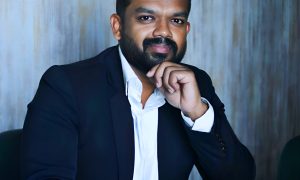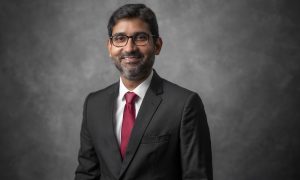This interview has been published by Namrata Singh and The SuperLawyer Team

Your journey in law began with an inspiration from Hindi movies. How did this fascination shape your career, and what were the initial challenges you faced as a first-generation lawyer?
From a young age, I was inspired by the portrayal of lawyers in Hindi movies, passionately advocating for justice. This fascination ignited my dream of becoming a lawyer, viewing it as a noble profession where I could make a real difference. These cinematic representations motivated me to pursue a career in law with a vision of being a beacon of hope and justice, much like the heroes on screen.
One significant challenge I faced was the lack of mentorship. Unlike some of my peers who had family members in the profession, I had to seek out mentors and resources independently. This, however, turned into a strength, making me resilient and resourceful. I learned to leverage every opportunity for learning and growth, from internships to networking events.
Entering the professional world meant proving myself in a highly competitive environment. As a first-generation lawyer, I had to work twice as hard to establish my credibility and demonstrate my skills. The early stages of my career were marked by long hours, continuous learning, and a relentless drive to excel.
Despite these challenges, my journey has taught me the value of perseverance, hard work, and the importance of building strong professional relationships, which have been instrumental in my growth and success as a lawyer.
You started your career at a leading publishing company and then transitioned to Legal Process Outsourcing (LPO). What motivated this shift, and how did your experience at Pangea3 influence your professional growth?
In 2006, as the Legal Process Outsourcing (LPO) industry was rapidly emerging, I saw an opportunity to explore this new field, knowing I could return to litigation if it didn’t meet my expectations.
I joined Pangea3 with an impressive client base, including top US law firms and some of the world’s largest companies in various sectors. I started in the corporate division where my role was reviewing, summarizing and abstracting technology, finance, and real estate agreements. This role gave me valuable insights into intricate legal transactions, enhancing my understanding of these areas.
Later, I transitioned to the litigation department, where I got an opportunity to manage teams of high-performing lawyers. Leading a team that critically evaluated and challenged every decision was a unique and challenging experience. We often worked on projects with tight deadlines, requiring long hours, including weekends. Maintaining team spirit and motivation under such high pressure without compromising quality was a formidable task.
My experience at Pangea3 significantly influenced my professional growth by developing my leadership skills, deepening my understanding of complex legal agreements, and providing me with a global perspective on legal practices.
Working with stakeholders across the globe has given you a global outlook. Can you share some key insights or experiences that have shaped your understanding of global legal practices?
Working with global companies, often involves collaboration with diverse teams, each bringing their frameworks and practices. Establishing trust and rapport with international stakeholders often requires consistent and proactive engagement. During my time managing high-value transactional agreements, I found that regular discussions with an intent to understand the stakeholders’ goals and challenges were key to successful collaboration. There is also need of clear and precise communication as concepts and terminologies can vary significantly between countries. Therefore it’s essential to articulate legal advice in a way that clients and colleagues from different backgrounds easily understand.
At Maersk, you set up and managed the legal team in India. What were the significant challenges and accomplishments during this period, and how did it enhance your expertise in complex negotiations?
One of the key lessons I learned at Maersk was the distinction between setting up a legal team versus managing an established one. My team in Mumbai, including myself, were new hires in the legal department. While my team members often looked to me for guidance, I was also learning alongside them about the work, culture, and policies. However, I was fortunate to receive valuable support from my General Counsel and CFO, who instilled confidence in me and reminded me not to be too hard on myself despite the initial challenges. My team played a crucial role in alleviating much of the pressure.
As an in-house counsel at Maersk, my role extended beyond just advising and identifying risks to actively negotiating and defending the company’s best interests while closing agreements. The hands-on negotiation experience with the support and mentorship I received, significantly developed my skills and confidence in managing complex legal matters.
Transitioning to Firmenich, you moved into the sales side of legal work. How did this shift in focus help you grow professionally, and what unique skills did you develop during your time there?
At Maersk, I was always in a dominant position representing the procurement team. In contrast, at Firmenich, I needed to be more accommodating to ensure timely deal closures without compromising the company’s interests. Striking the right balance between being aggressive and stepping back when necessary was challenging at first.
Further, at Firmenich, I had the opportunity to work with Legal Heads for Europe, Asia, and the Americas region. Each one of them had a unique style, allowing me to learn significantly from their diverse approaches.
My colleagues and seniors in the legal department were incredibly helpful and supportive, that allowed me to transition from a procurement-focused lawyer to a business-driven counsel.
With your vast experience, what advice would you give to current in house legal professionals who are looking to navigate and succeed in the ever-evolving legal landscape?
Regardless of whether you are a first-generation lawyer or not, maintaining an open mindset is crucial. Embrace the continuous learning that the legal profession demands. As an in-house counsel, it’s essential to have a comprehensive understanding of your company’s business and the nature of its transactions. This insight enables you to provide relevant and strategic legal advice.
Never hesitate to ask questions – whether about a transaction, legal concept, or business process. Seeking clarity is key to ensuring that you can offer sound legal advice.
Most importantly, cultivate resilience. The legal field can be demanding, and navigating its complexities requires the ability to adapt and persevere through challenges.
In your opinion, what are the most critical ethical considerations for in-house attorneys, and how do you ensure that these principles are upheld in your daily work?
From a young age, I viewed the law as a profession dedicated to justice and integrity. For in-house attorneys, upholding ethical principles such as honesty and transparency is paramount.
In my practice, I ensure that I present an accurate assessment of risks so that the organization can make informed decisions. I believe in providing clear and honest advice without overselling or exaggerating potential outcomes. If I am uncertain about any aspect of a legal issue, I ask for the necessary time to research and provide a well-informed response.
Can you share a personal development or mentorship experience that significantly impacted your career trajectory?
The mentorship that I received in Maersk was invaluable as I began my career as an in-house counsel. Maersk emphasized the importance of praising in public and reprimanding in private, a principle that has deeply influenced my working style. The company’s zero tolerance for any form of belittlement, regardless of a person’s seniority, reinforced the idea that effective leadership don’t require being disrespectful or domineering.
The weekly meetings with the General Counsel and CFO were particularly impactful. Their guidance not only boosted my confidence but also equipped me with the skills needed to lead high-performing teams effectively. This experience has been pivotal in my professional development and continues to shape my working style till today.
As someone with extensive experience, how do you mentor and guide young lawyers entering the field? What key qualities do you believe are essential for their success?
In India, many career decisions are often influenced by family expectations or the allure of someone else’s success. I will tell all young lawyers that don’t be afraid to take bold steps and embrace opportunities to learn, even if they seem outside your immediate area of expertise rather than simply following someone`s footsteps. While you may get inspiration from people around you, do remember that you have to pave your path to make the mark.
Key qualities for success in this field include curiosity, resilience, and a willingness to continuously learn and adapt. By embracing these qualities and valuing every experience along the way, young lawyers can effectively navigate their careers and achieve long-term success.
With such a demanding and multifaceted career, how do you unwind and relax? What activities or hobbies help you maintain a healthy work-life balance?
The role of an in-house counsel can indeed be demanding and exhausting but a strong family support helps me manage stress effectively.
For me, travelling serves as a form of therapy. I take at least one vacation each year to explore new places and immerse myself in different experiences. This not only provides a refreshing break but also broadens my perspectives.
When time permits, I find relaxation in watching movies or web series, particularly those with compelling courtroom drama. It may sound cliche, but engaging with legal dramas allows me to enjoy my passion for the law in a more relaxed setting.
STT Global Data Centres (“STTGDCI”) is a prominent name in the data centre industry. Could you share more about the company, your role and your experience so far.
STT GDC India (4th consecutive winner as Great Place to Work) is one of the leading data centre providers in India and hosts critical business infrastructure for many of the top Fortune 500 companies.
I oversee the end-to-end closure of commercial contracts for both the procurement and sales departments. My role also extends to day-to-day advisory services, resolving disputes arising from commercial contracts, and acting as the legal SPOC for regulatory matters related to sales contracts. In the past, I supported real estate transactions and handled customer recovery.
At STT Global Data Centres, I’ve had an incredible experience of working in a fast-paced, high-growth industry. My team and colleagues are extremely helpful and are willing to lend support whenever needed. My General Counsel has been instrumental in my development so far. He cultivates a positive and supportive work environment within the team. His management style is flexible, and he doesn’t believe in micromanaging, which instils confidence and allows me the autonomy to handle situations with a greater sense of responsibility.
Get in touch with Jyoti Kapoor –

























